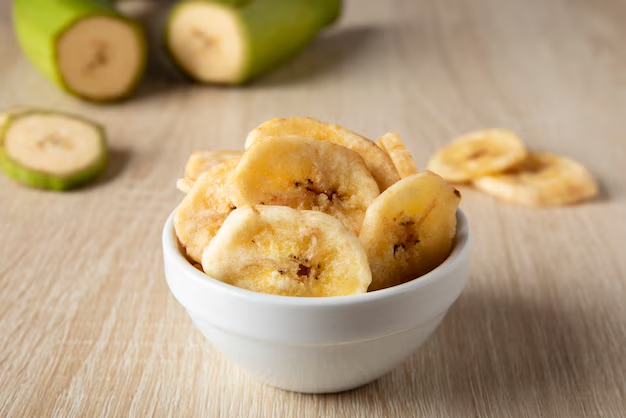Should You Refrigerate Bananas to Keep Them Fresher Longer?
Bananas are undoubtedly one of the most popular fruits worldwide. Whether eaten on their own, sliced into cereal, or blended into smoothies, their versatility and delicious taste make them a staple in many households. But when it comes to preserving their freshness, a question often arises: Should bananas be refrigerated? This article will explore whether refrigeration helps keep these beloved fruits fresher longer, touching on the science behind ripening, storage methods, and some insider tips for banana enthusiasts.
The Ripening Process of Bananas
Understanding Banana Ripening
Before diving into the effects of refrigeration, it’s essential to understand how bananas ripen. This ripening process is largely driven by a natural plant hormone called ethylene. Ethylene is released by bananas both prior to and during the ripening phase, converting the starches within the fruit into sugars. This conversion not only affects the taste but also changes the banana’s texture and color, transitioning from green to yellow to brown.
Key Points:
- Ethylene gas accelerates ripening.
- Ripening transforms starches into sugars, altering flavor and texture.
- Color changes indicate different ripening stages.
Temperature's Role in Ripening
Temperature plays a significant role in the speed of the ripening process. Warmer temperatures generally increase ethylene production and, in turn, hasten ripening. Conversely, cooler temperatures slow down these processes. This is where refrigeration could potentially affect how long your bananas remain fresh.
Refrigeration: Yay or Nay?
Immediate Effects of Refrigerating Bananas
Refrigerating bananas can be a bit of a double-edged sword. While the cooler environment slows down the actual ripening process inside the fruit, it also causes immediate changes to the banana's peel. When exposed to cold, the skin can quickly turn brown or even black, which might be unappealing to some. Despite this, the flesh remains mostly unchanged and quite fresh for consumption.
Pros of Refrigeration:
- Slower internal ripening keeps the flesh fresher.
- Prevents over-ripening once bananas reach the desired stage.
Cons of Refrigeration:
- Skin browns or blackens faster than non-refrigerated bananas.
- Cosmetic appearance may be less appealing.
When to Refrigerate
According to general consumer observations, if you wish to refrigerate bananas, the ideal time is once they have reached your preferred level of ripeness. If you place them in the refrigerator while still green, they may not ripen correctly, leading to undesirable texture and taste.
Tip: 📝 Monitor your bananas and move them to the fridge right when they're perfectly ripe to prolong freshness without compromising taste.
Alternative Banana Storage Methods
Keeping Bananas Out of the Fridge
For those who prefer ripe bananas with a yellow peel, storing them at room temperature is key. Placing bananas on a countertop away from direct sunlight is often the best approach. This setting allows them to ripen naturally while retaining a visually appealing peel.
Best Practices:
- Hang bananas on a hook to prevent them from bruising.
- Keep them away from other ethylene-producing fruits like apples to avoid accelerated ripening.
Freezing Bananas
Freezing offers a different approach, perfect for those who enjoy bananas in smoothies or baking. To freeze, first peel the bananas, then either halve or slice them before placing in a freezer-friendly container or bag. Frozen bananas can be used directly in smoothies for a creamy texture or thawed for use in baking recipes.
Freezing Benefits:
- Extends shelf life dramatically.
- Perfect for smoothies and baking.
Freezing Tips:
- 🥶 Flash freeze slices on a tray before bagging to prevent clumping.
- Use within one month to ensure optimal quality.
Practical Storage Tips for Keeping Bananas Fresh
Here's a handy summary to help you decide on the best method to keep your bananas fresh:
- Hang bananas on a hook to minimize bruising.
- Store separately from other fruits to slow ripening.
- Refrigerate ripe bananas to maintain freshness longer, even if the peel darkens.
- Freeze overripe bananas for longer-term storage and versatile use.
Notable Considerations and Myths
Over the years, several myths about refrigerating bananas and their freshness have circulated. For instance, it’s a common misconception that blackened skin indicates spoiled fruit. In reality, the interior remains perfectly edible; the color change simply results from the cold slowing ethylene’s effects on the peel.
Additionally, some believe that storing bananas in a plastic bag can keep them fresh longer. However, this can worsen the situation as it traps ethylene, speeding up ripening instead.
Exploring Related Refrigerator Topics
The discussion of bananas naturally opens the door to broader storage topics, such as how to store other fruits more effectively. Refrigeration does not always provide the same benefits for all fruits as it does for bananas. For example, berries and grapes tend to spoil faster at room temperature and benefit from being kept in the refrigerator. Likewise, apples and pears continue to ripen and develop flavors when stored outside the fridge.
Fruit-Specific Storage Tips:
- Berries and grapes thrive in cool, dry environments. Store in the fridge and wash just before eating.
- Apples and pears can be kept at room temperature until they achieve desired ripeness, then refrigerated.
- Citrus fruits can be stored in a cool, airy place for up to a week or refrigerated for longer storage.
Final Thoughts
Whether or not to refrigerate bananas depends largely on your preferred texture, sweetness level, and how quickly you plan to consume them. Identifying the optimal time to move bananas from the counter to the fridge (or even the freezer) can enhance not just their longevity but also their flavor and usability. Understanding these best practices allows you to enjoy bananas just the way you like them, day after day. 🥳

